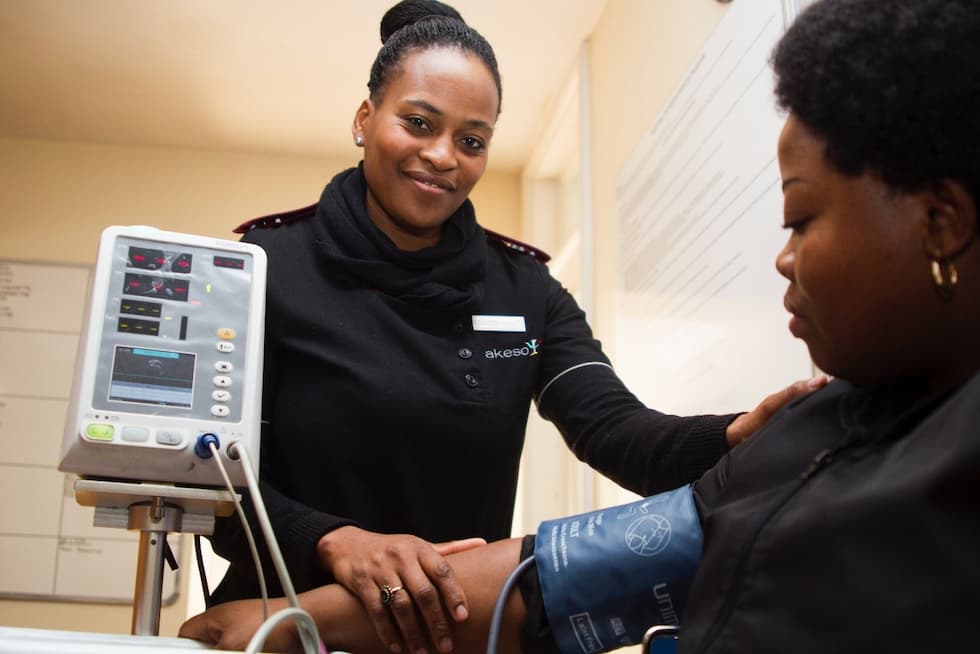What is Allied health?
Allied health is “a broad field of health-care professions made up of specially trained individuals (such as physical therapists, dental hygienists, audiologists and dietitians) who are typically licensed or certified,” according to the Merriam-Webster dictionary.
Allied health professionals practice the diagnosis and treatment of diseases, promote disease prevention and health wellness, and provide rehabilitation services. The types of professions in this field are abundant and allied health professionals have a wide range of duties! Positions include both technical and support services that keep the healthcare system running smoothly.
There are allied health jobs in many areas, including:
- Radiology
- Laboratory
- The Operating Room
- Respiratory
- Rehab Services
- Social Services
- Administrative
Medical Assistants in Allied Health
Medical Assistants (MAs) have an essential role in the healthcare field. But the question is, how do you become a Medical Assistant? Before you decide on this career path, let’s take a deep dive and learn about medical assistant jobs.
What does a Medical Assistant do?
Medical Assistants have a wide range of roles that they represent. They take care of patients, as well as carry out administrative jobs within the office. Some of the clinical duties of a Medical Assistant include recording vital signs when interacting with patients, compiling patients’ medical histories, and administering medications under a supervising physician’s direction.
In the administrative realm, medical assistants can handle everything from scheduling appointments to billing and helping patients fill out insurance forms.
Education for a Medical Assistant
To become a Medical assistant, there are a few important steps you must take before you begin. This includes your education.
You need to earn your medical assistant diploma. You can earn this right out of high school, but some employers prefer that you earn a secondary degree. In addition to all your assignments, you will want to complete an internship, which will help you grow and advance your skills.
The next step in your process to become a Medical Assistant is you will need your certifications. The two primary certification options are the Certified Medical Assistant (CMA) exam through the American Association of Medical Assistants, and the Registered Medical Assistant (RMA) exam. Each of these certifications can help you advance your career and will open up even more opportunities!
Finally, practice your skills, apply and interview for jobs.
What kind of skills do you need?
To become a successful medical assistant, there are a few skills that may be beneficial to have.
For the clinical side:
- Patient care
- Vital signs measurement
- Injections
- Cardiopulmonary resuscitation (CPR)
- Electrocardiogram (EKG)
- Phlebotomy
- Patient preparation
- Life support
- Medical terminology
- Patient/family education
For the administrative side:
- Scheduling
- Appointment setting
- Customer service
- Electronic Medical Records
- Medical coding
- Patient flow
- Computer literacy
- Telephone skills
- Collaboration
- Multitasking
All these skills will help make up a great Medical Assistant, but how does each skill help with gaining more confidence in your career? You can continue your education. Completing a second-degree program can help enhance your skills as well as provide you with more training.
Where can a Medical Assistant work?
Medical assistants have a wide variety of settings they can work in.
Within the specialized clinics, they can be placed in Outpatient Clinics, Ophthalmology Clinics, Clinical Labs, Chiropractic units, Obstetrics & Gynecology, Primary Care Facilities, Emergency Departments, and many more. Always remember to do your research on what type of specialty and location you want to focus on.
To learn more about our allied health opportunities, you can stay up to date on our healthcare blog or visit our website.
Follow us on social media to stay up to date on our current openings! Check out our Facebook, Instagram, and LinkedIn.





